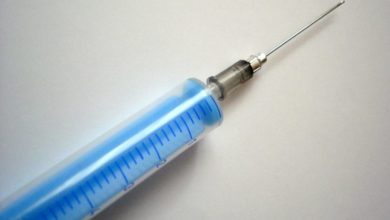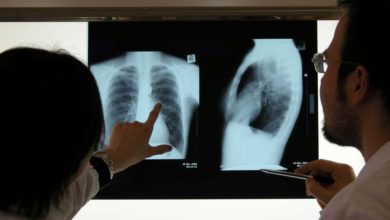In the early 1900’s, Carl Jung theorized that there are four primary psychological functions by which we experience the world: sensation, intuition, feeling, and thinking. His wife and daughter, Katharine Cook Briggs and Isabel Briggs Myers, expanded this theory to create a personality question that would eventually turn into the Myers-Briggs Type Indicator (MBTI) in 1962. This test produces a combination of four dichotomies. These four dichotomies are:
1. Extraversion vs. Introversion
2. Sensing vs. Intuition
3. Thinking vs. Feeling
4. Judging vs. Perception
Most people are familiar with this test and know that the test produces a four letter personality type. For example, if you are ESTJ, that means you are primarily a sensing, thinking, judging extrovert. There are 16 different personality types in all.
Note: If you want to learn more about these different personality types, you can visit the Myers Briggs Foundation.
These personality tests have often been used to help decide which career path someone should follow and the field of medicine is no different. Even though some joke that most doctors have a “type A personality”, the personality profiles of physicians span all 16 of the different Myers Briggs personalities. This is mainly because personality and medical specialty often go hand in hand because different medical specialties require different types of people.
Here are the results of a study that observed the Myers Briggs personality types and the associated medical specialties:
Introverted–Sensing–Thinking–Judging (ISTJ)
Dermatology
Obstetrics-gynecology
Family practice
Urology
Orthopedic surgery
Introverted–Sensing–Feeling–Judging (ISFJ)
Anesthesiology
Ophthalmology
General practice
Family practice
Pediatrics
Introverted–Sensing–Thinking–Perceptive (ISTP)
Otolaryngology
Anesthesiology
Radiology
Ophthalmology
General practice
Introverted–Sensing–Feeling–Perceptive (ISFP)
Anesthesiology
Urology
Family practice
Thoracic surgery
General practice
Introverted–Intuitive–Feeling–Judging (INFJ)
Psychiatry
Internal medicine
Thoracic surgery
General surgery
Pathology
||See tips on shadowing a physician||
Extroverted–Sensing–Thinking–Judging (ESTJ)
Obstetrics-gynecology
General practice
General surgery
Orthopedic surgery
Pediatrics
Extroverted–Sensing–Feeling–Judging (ESFJ)
Pediatrics
Orthopedic surgery
Otolaryngology
General practice
Internal medicine
Extroverted–Intuitive–Feeling–Perceptive (ENFP)
Psychiatry
Dermatology
Otolaryngology
Psychiatry
Pediatrics
Introverted–Intuitive–Thinking–Judging (INTJ)
Psychiatry
Pathology
Neurology
Internal medicine
Anesthesiology
Introverted–Intuitive–Feeling–Perceptive (INFP)
Psychiatry
Cardiology
Neurology
Dermatology
Pathology
Introverted–Intuitive–Thinking–Perceptive (INTP)
Neurology
Pathology
Psychiatry
Cardiology
Thoracic surgery
Extroverted–Sensing–Thinking–Perceptive (ESTP)
Orthopedic surgery
Dermatology
Family practice
Radiology
General surgery
Extroverted–Sensing–Feeling–Perceptive (ESFP)
Ophthalmology
Thoracic surgery
Obstetrics‐gynecology
Orthopedic surgery
General surgery
Extroverted–Intuitive–Thinking–Perceptive (ENTP)
Otolaryngology
Psychiatry
Radiology
Pediatrics
Pathology
Extroverted–Intuitive–Feeling–Judging (ENFJ)
Thoracic surgery
Dermatology
Psychiatry
Ophthalmology
Radiology
Extroverted–Intuitive–Thinking–Judging (ENTJ)
Neurology
Cardiology
Urology
Thoracic surgery
Internal medicine
*Source: McCaulley, M.H. The Myers Longitudinal Medical Study (Monograph II).Gainesville, Fla: Center for Applications of Psychological Type; 1977.



